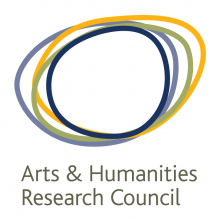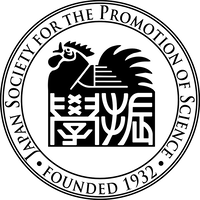Our Research
2020-2023: The Reception of German Mysticism in Early Modern England
The Social Sciences and Humanities Research Council of Canada (SSHRC) have awarded a three-year Insight Grant to Professor Torrance Kirby of McGill University (PI), with Professor Douglas Hedley, Cambridge Divinity Faculty and Director of the Centre for the Study of Platonism and Professor Garth Green, Director of the McGill School of Religious Studies (co-applicants) for research on ‘The Reception of German Mysticism in Early Modern England’. A key structural feature of this international Insight Research Grant is to build upon an already thriving collaboration between scholars in the School of Religious Studies at McGill University and the Faculty of Divinity at Cambridge University. Professor Kirby was a Visiting Research Fellow at CRASSH (2015) and Professor Hedley was Visiting Professor of the Philosophy of Religion at McGill (2019).
The project consists in establishing the fundamental influence of German or Rhenish mysticism on English religious thought, chiefly in the 17th-century. The English reception of such German mystical authors as Meister Eckhart (c. 1260-1328), the anonymous author of Theologia Germanica, Johannes Tauler (c. 1300-1361), Nicholas of Cusa (1401-1464), Sebastian Franck (c. 1499-1542), Hans Denck (1500-1527), Valentin Weigel (1533-1588), and Jakob Böhme (1575-1624), to mention just the most significant representatives of this tradition, has been hitherto little studied, or not studied at all. There are some notable exceptions, particularly the research of Douglas Hedley (co-applicant) on the exceptional role of the Cambridge Platonists, especially of Henry More, in the dissemination of German mysticism in England in the seventeenth-century. This project will not only reconstruct for the first time the wide ranging reception of these German thinkers in Early Modern England, but also show that it was through this reception that the influential tradition of 'German mysticism' was first created. For instance, while in 17th-century Germany the writings of the main figure of this tradition, Jakob Böhme, went underground because of accusations of heresy, in England they were keenly translated, commented upon, and considered in relation to other German writers who had also been translated at the same time, specifically Sebastian Franck and Valentin Weigel. Through their work, the English readers thus established a lineage that connected these thinkers, and that at the same time created a philosophical bridge between England and Germany. The project will highlight the international legacy of these authors by adopting the perspective of historico-philosophical engagement with the sources, placing them also in the theological milieu of their time.
2019-2022: Marie Skłodowska-Curie
The Cambridge Centre for the Study of Platonism has been awarded £225,973.27 as part of a Marie Skłodowska-Curie grant. The Primary Investigator is Professor Douglas Hedley, and the grant will fund Dr Anna Corrias' research from 1 September 2019 until 31 August 2022. Dr Corrias will spend the first period of the grant in Toronto with Professor Lloyd Gerson and then complete the second half of the grant in residency at the Centre.
2017-2019: Newton International Fellowship 
Dr. Adrian Mihai – The project, which is funded for two years by the British Academy (Newton International Fellowship, £99,000), consists in providing the first critical edition of Ralph Cudworth’s ‘The True Intellectual System of the Universe’ (London: Richard Royston, 1678). Though Ralph Cudworth (1617-1688), leading figure of the Cambridge Platonists group, has been recognised in recent years as one of the most important British philosophers of the 17th-century, there is still no critical edition of his magnum opus that meets the standards of modern philology and that is up-to-date with research both in Classical and in Modern European thought (the last edition was published in 1845).
2016-2019: The Cambridge Platonists at the origins of Enlightenment: texts, debates, and reception (1650-1730)
Prof. Douglas Hedley, Dr. David Leech, Dr. James Bryson, Dr. Mark Burden, Dr. Christian Hengstermann, Dr. Michael Hawkins – This project, is funded by an £833,472 AHRC research grant.
2013-2019: Social Sciences and Humanities Research Council of Canada - Early Modern Conversions
The ability to convert is uniquely human. When we awaken to a new faith, join a new political movement, or take on a new identity, we exercise our freedom to reinvent ourselves and also to become who we were always meant to be.
But what if conversion is really a leap into a false ideal, a con game, or something imposed on us by external forces? We treasure the freedom to remake ourselves, but we are also troubled by our own changeability and impressionability.
The Conversions project has brought together an international team of scholars and artists to study the first great Age of Conversion. From around 1400 to 1700, Europeans converted their religious, social, political, and even sexual identities—sometimes voluntarily, sometimes by force.
People in the 21st century also live in a time of globalization and massive change that sees the uncontrolled growth of youth radicalization, conversion-centred violence, and a multi-billion-dollar personal transformation industry.
The Conversions project brings historical scholarship and the creative arts to urgent questions that face us now as we enter the second great Age of Conversion.
Living Ideas: Dynamic Philosophies of Life and Matter, 1650–1850
The Japan Society for the Promotion of Science is awarding a multi-year grant to "Living Ideas: Dynamic Philosophies of Life and Matter, 1650–1850", an international project running in collaboration with the Cambridge Centre for the Study of Platonism. The project will study how dynamic philosophies from the Cambridge Platonists, through thinkers including Shaftesbury, Herder, and Kant, to post-Kantians such as Schelling, Hegel, and S. T. Coleridge, understood the existence, development, and variegated phenomena of matter and biological life from their respective, often inter-related, metaphysically idealist perspectives.





